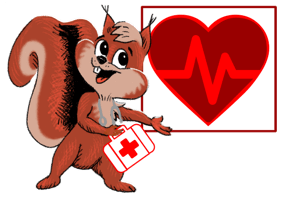Health Conditions and Diseases Neurological Disorders Trauma and Injuries Brain Injury
Prosopagnosia
9
Prosopagnosia, or face blindness, is a disorder of face perception in which the ability to recognize faces is impaired, while the ability to recognize other objects may be relatively intact. In extreme cases the ability to recognize a face as a face is impaired.
More information
More information
Related categories 1
Sites 9
The Guardian interviews a man who can’t recognize himself, his wife or his seven children.
Bill Choisser describes life with face blindness, and in particular the effect on sexuality and socializing.
The Macquarie Centre for Cognitive Science is interested in how people perceive and recognize faces and facial expressions, so has been studying people with prosopagnosia and epilepsy.
Lie, deny, sigh, these have been my social coping skills. Trying to figure out a better way to go through life as a prosopagnosic, aka, faceblind person.
The Hour on YouTube discusses prosopagnosia.
Asking prosopagnosiacs to contact the research team.
The free encyclopaedia distinguishes between apperceptive prosopagnosia, associative prosopagnosia, and developmental prosopagnosia.
The BBC reports on two people with prosopagnosia.
(October 06, 2013)
CNN asks readers to “Imagine an entire day of seeing faces—friends, co-workers, even family—but not being able to retain those images in your mind”.
(February 02, 2007)
The Guardian interviews a man who can’t recognize himself, his wife or his seven children.
Bill Choisser describes life with face blindness, and in particular the effect on sexuality and socializing.
The Macquarie Centre for Cognitive Science is interested in how people perceive and recognize faces and facial expressions, so has been studying people with prosopagnosia and epilepsy.
The free encyclopaedia distinguishes between apperceptive prosopagnosia, associative prosopagnosia, and developmental prosopagnosia.
Lie, deny, sigh, these have been my social coping skills. Trying to figure out a better way to go through life as a prosopagnosic, aka, faceblind person.
The Hour on YouTube discusses prosopagnosia.
Asking prosopagnosiacs to contact the research team.
The BBC reports on two people with prosopagnosia.
(October 06, 2013)
CNN asks readers to “Imagine an entire day of seeing faces—friends, co-workers, even family—but not being able to retain those images in your mind”.
(February 02, 2007)
